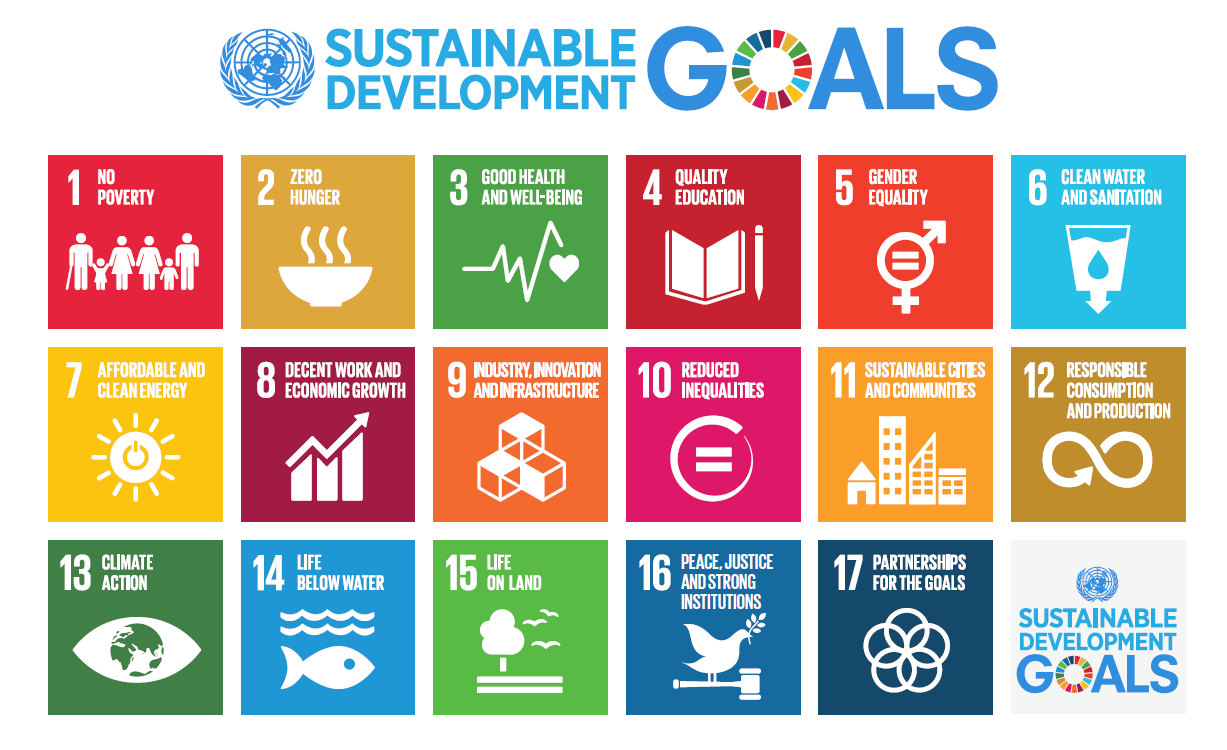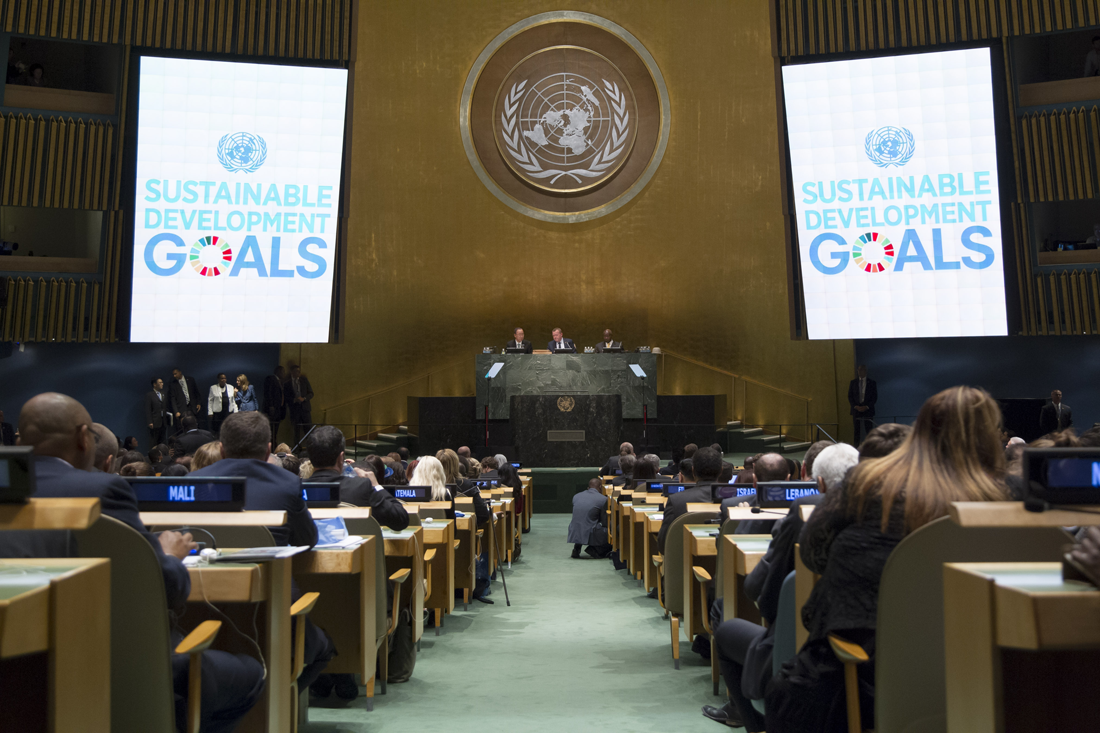Expert Support for Implementing the Sustainable Development Goals
Sustainable development has become one of the animating norms of world politics. The Sustainable Development Goals (SDGs) were adopted by the United Nations in 2015 as the framework for international development agenda through 2030.
Sustainable development can only be pursued through multilateral cooperation. Cooperation is necessary in order to capture the multiple externalities between issues and their governance within and between countries. Because of the technical nature of the SDGs, their pursuit also requires systematic and sustained technical input of expertise and knowledge.
The USA is no longer able to unilaterally exercise hegemonic leadership: its military is overstretched, and while it enjoys economic primacy, it no longer enjoys the disproportionate global structural power it did after World War II. The USA can surely continue to exercise soft power, but only in conjunction with the rest of the international community and through international institutions. A Trump administration makes it increasingly unlikely that the USA will serve any kind of significant role in promoting the SDGs at all.
Achieving the SDGs is a noble goal, or a number of noble goals. Yet much of the way to achieve them, or implement them, remains unclear. Despite the normative imperative for sustainability, the international governance institutions to support sustainability remain inadequate as the UN still does not have significant capacity for capturing cross-issue interdependencies, and few governments yet have the political will. Such institutional deficits have been bridged in the past through the mobilization of better scientific institutions to help induce social learning regarding the complexity of the issue space confronting states. Concretely, improving the implementation of the SDGs calls for a new expert panel at the UN.
Implementing the SDGs remains a complex task. Many of the 17 SDGs are themselves poorly understood or incompletely articulated, and the array of interconnections between the SDGs themselves is complex and poorly understood (Kanie and Biermann 2017, ch 6). While ending poverty (goal #1) and hunger (goal #2) and promoting good health (goal #3) and clean water and sanitation (#6) are reasonably well understood, promoting sustainable cities (goal #11) and responsible consumption (goal #12) are much less well understood. The connections between the goals have not yet been meaningfully addressed, so that there are no instruments in place to assure that unanticipated consequences don’t emerge in one area as a consequence of progress in another. For instance, achieving sustainability in life on land (goal #15) may well yield pressures on life below water (goal #14); and reduced inequalities (goal #10) may well have environmental side effects which are not addressed in the indicators applied to monitoring the reduction of inequality.
Expert advice for implementing the SDGs faces a threefold task: organizing information for the poorly understood SDGs; harvesting best practices in implementation by multiple actors for the SDGs for which shared understandings exist; and providing timely information about the interconnection between the issues.
Organizing information. Implementation requires background conditions about each of the goals. Much of this was already collected during the run up to the adoption of the SDGs, or is readily accessible to the UN Department of Economic and Social Affairs, which has been tasked with the bureaucratic support for the SDGs. The UN should also be able to see if there are gaps in knowledge and thus seek to create new bodies for them.
Harvesting best practices. Collecting and publicizing best practices for states as well as civil society actors and private firms in order to reach the various goals can be performed by the UN as well. Much of this information is already in the public domain or provided by actors themselves.
Orchestrating knowledge between discrete goals. The goals are interconnected by positive and negative interactions. It is imperative to ensure that there are no unanticipated consequences for other areas of sustainability from achieving sustainability in one, as well as taking advantage of the positive connections between issues. Very little is known about the connections between issues because most expertise, and the organization of expertise rests on knowledge about discrete areas of activity. There are very few experts about interconnections. In order to capture these interconnections some form of orchestration needs to be introduced to coordinate information about the interconnections between the goals.
While there already exist many expert panels which organize knowledge about distinct issues, none operate to connect the issues. There is need for a meta-panel, or panel of panels, to capture the interconnections between the SDGS. A sustainability expert panel must thus be able to tap into a diverse array of expertise across issues. A new panel of panels would orchestrate the flow of information between existing discrete expert panels. Such a meta-panel would serve as an informational switchboard which was able to tap into the existing ecosystem of science panels.
Over 100 international science panels and global environmental assessments are already in existence (Haas and Stevens 2011) Yet none exist to pool and coordinate such issue-specific knowledge. Such a panel would look at synergies and gaps in knowledge about the connections between the SDGs.
Members of such a panel should be selected by an impartial authority – such as the Secretary General or another high profile international authority – based on their experience and professional competence. A possible model would be to draw from the chairs of existing international scientific panels – including IPCC, Ozone Scientific Assessment Panel, IPBES, and so on – as well as interdisciplinary experts from the natural and social sciences.
An orchestration panel must be able to provide usable knowledge as well as easily coordinate the knowledge of other, existing panels. Based on institutional design lessons drawn from other expert panels, (Haas and Stevens 2011) such an orchestration panel should:
- be composed of independent experts with international reputations in their fields, drawn from multiple disciplines.
- Be composed of experts from academia, civil society and the private sector in order to capture multiple perspectives on sustainability.
- Members should be appointed based on merit by impartial authorities.
- members should be recruited based on merit representing a diverse array of countries
- the panel should have stable funding, and not be dependent upon a single funding source
- It should meet regularly and report directly to governments through the UN HLPF.
- It should seek to be clear on areas of consensus and contestation.
While a diversity of knowledge is necessary to capture the complexities of sustainability, one must exercise discretion in choosing members of the panel. Too many cooks spoil the broth. The panel should not value inclusiveness over effectiveness. Relevant knowledge, and the ability to deliberate with others is a necessary credential for panel members.
Sustainability is too important to be left up to governments alone. Implementing the SDGs will require expert inputs to help identify best practices, gaps in knowledge and practices, to monitor threats, and help promote public awareness and concern. A new orchestrating expert panel reporting to the HLPF can help capture the interlinkages between sustainability goals, and help develop public support for implementing the SDGs.
For feedback on earlier drafts I thank Lee Badgett, Sylvia Brandt, Amy Schalet, and participants in the Public Engagement Project at UMASS Amherst.
References
Haas, P. M. and C. Stevens (2011). Organized Science, Usable Knowledge and Multilateral Environmental Governance. Governing the Air. R. Lidskog and G. Sundqvist. Cambridge, MIT Press: 125-161.
Kanie, N. and F. Biermann, Eds. (2017). Governing Through Goals. Cambridge, MIT Press.

This article is published under a Creative Commons Attribution-NonCommercial 4.0 International licence.


